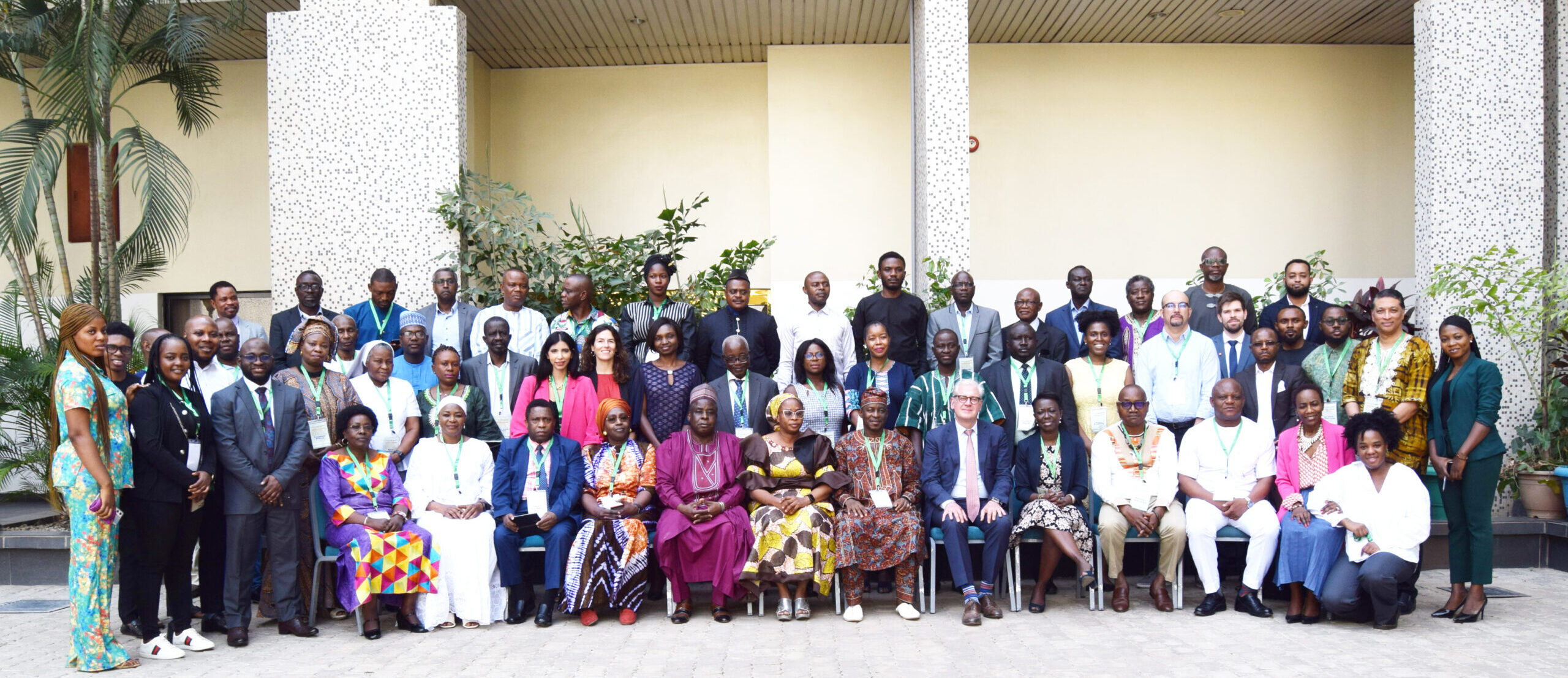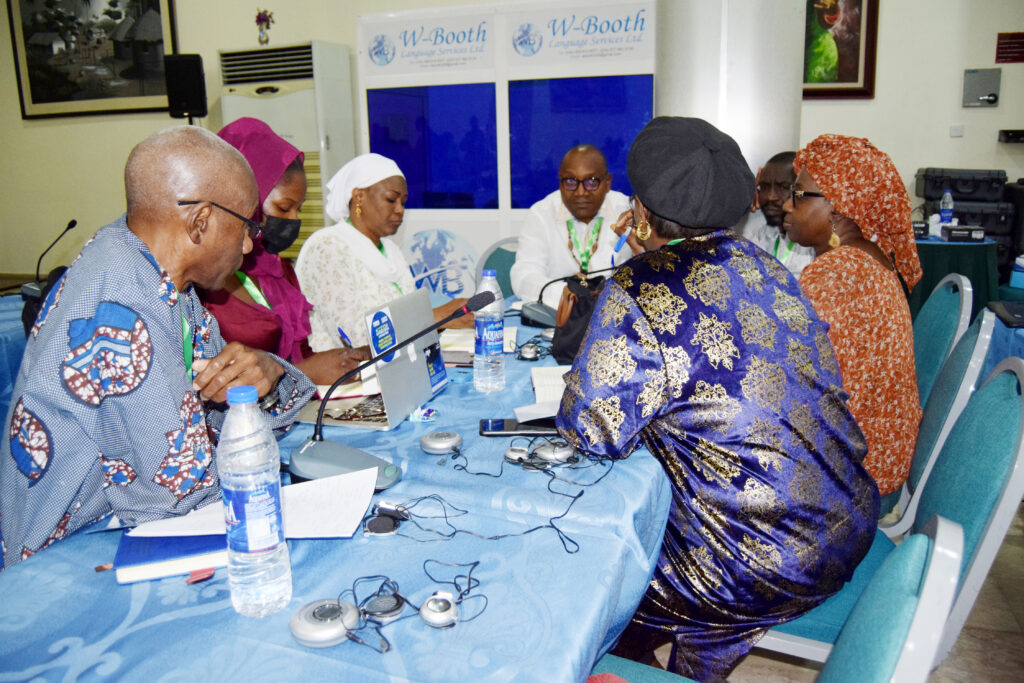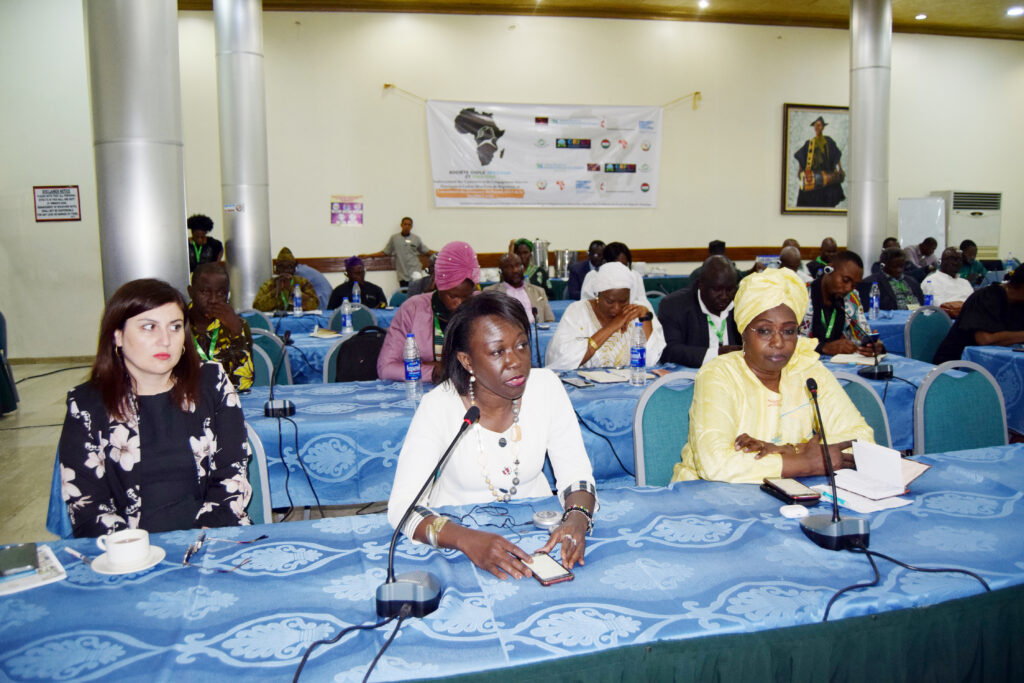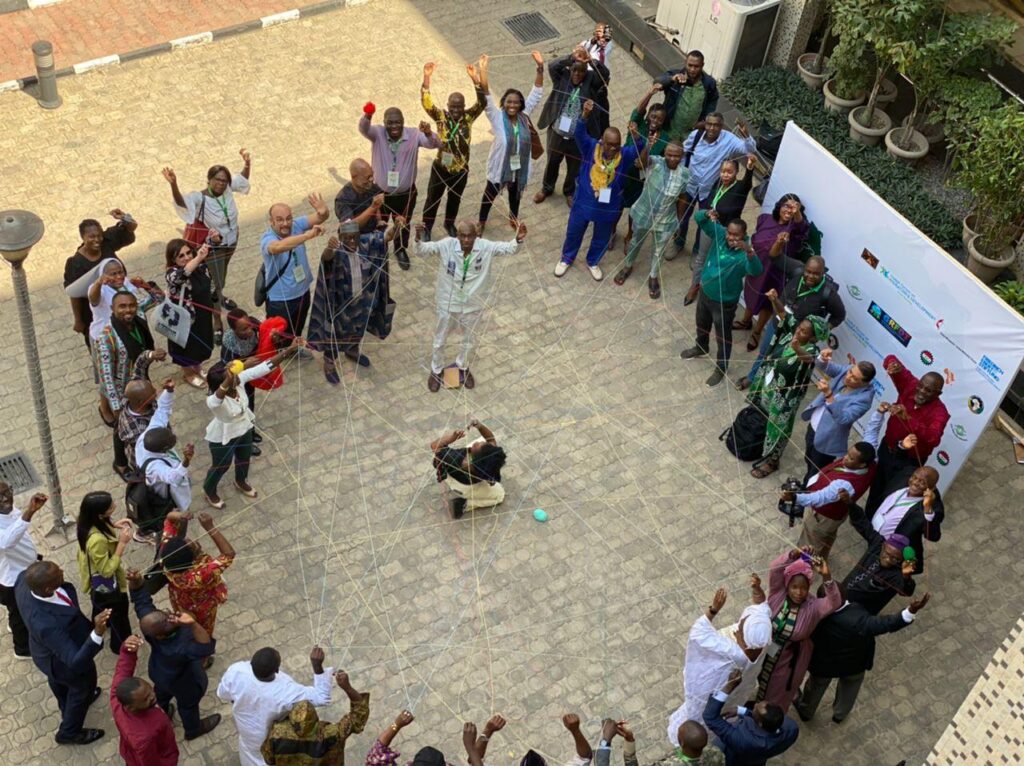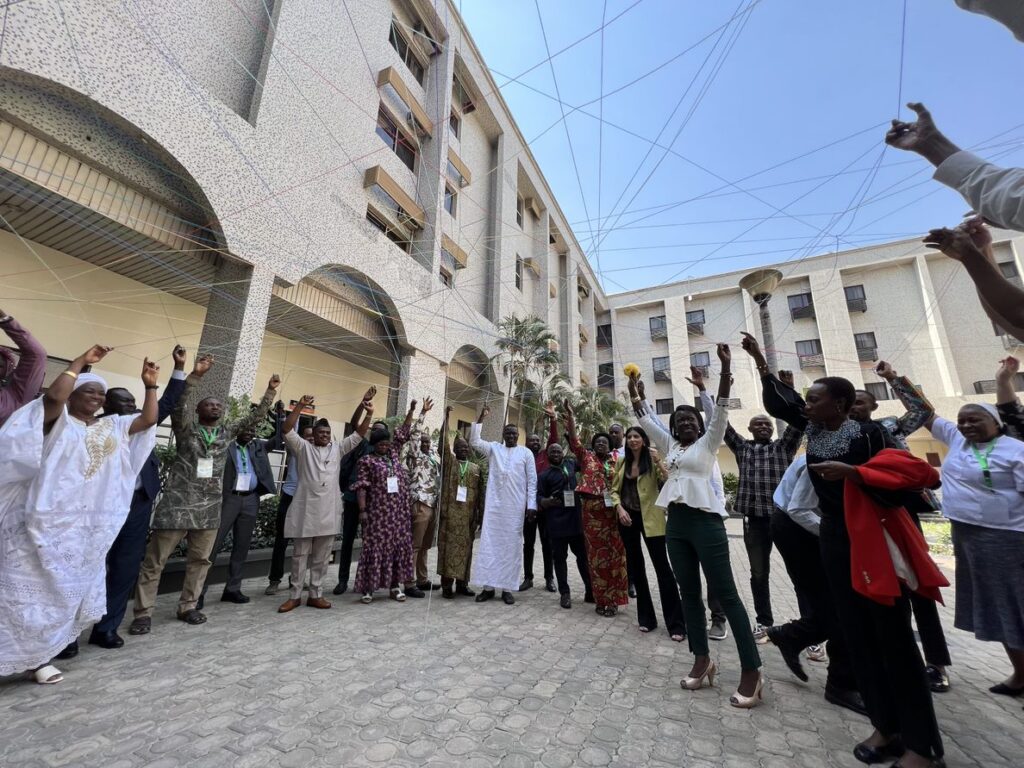In view of the 2023 GFMD process, African civil society and diaspora joined forces to build momentum around the GFMD and to foster greater engagement of Africa and Africans in migration processes. The Abuja Civil Society Forum, a three-day event co-organised by African civil society and diaspora, and focussed on their agency and enhancing their capacity in migration processes, was held in Abuja, Nigeria, from 30 January to 1 February 2023.
The Abuja Civil Society Forum was a joint initiative led by African civil society and diaspora networks (AFFORD, ECDPM, GRFDT, ITUC-Africa, PANiDMR), with the support of the GFMD Civil Society Mechanism secretariat. It was hosted by the Pan-African Network in Defense of Migrant’s Rights (PANiDMR) and its member, the Civil Society Network on Migration and Development, Nigeria (CSOnetMADE). As longtime members of the GFMD Civil Society Mechanism’s International Steering Committee (ISC), AFFORD and PANiDMR in particular have ensured equitable representation and active engagement of African civil society and African diaspora within the GFMD process over the years, and built on that strong foundation to enhance their joint engagement in this year’s GFMD process.
The Abuja Forum brought together civil society representatives from all regions of Africa, diverse diaspora participants, trade unions, and youth representatives (through the Migration Youth and Children Platform), as well as representatives of the GFMD Business and Mayors mechanisms, government representatives, and international and continental migration agencies. The Abuja Forum had two key ingredients: capacity building, and input gathering, to mark the Civil Society launch of the GFMD process.
Building capacity and strengthening engagement
One of the primary aims of the Forum was to develop capacity of civil society and to extensively discuss global and African migration frameworks, in order to provide understanding and dialogue on existing frameworks and ways of engagement. For this reason, Day 1 was dedicated to unpacking the Global Compact on Safe, Orderly and Regular Migration (GCM) and Africa’s regional and continental instruments (i.e. Agenda 2063, Protocol on Free Movement, African Continental Free Trade Area – AfCFTA, ECOWAS instruments, and Regional Economic Communities – RECs). Particular attention was also placed on the role of trade unions in the implementation of continental frameworks.
Contributions from panellists and participants revealed three significant aspects:
- There is a need to reclaim a focus on the African continent when it comes to mobility. Considering that migration flows from the continent remain intraregional, it is important to also translate measures from global migration processes into continental efforts by creating synergies between the various instruments. As a consequence of this well–established trend of mobility within the continent, situations of irregularity and legal pathways should be explored through an African lens.
- The implementation of global and continental agreements and treaties starts at the country level. These agreements have the potential to significantly improve the conditions of migrants and facilitate the movement of people. However, this requires proactive steps from states that can spur progress at local and national levels and through bilateral cooperation. Moreover, the fact that practices and local realities are usually ahead of policies, calls for integrating local authorities in the design and implementation of policies.
- Supporting collaborative efforts between the diaspora, trade unions, and civil society is central to successful migration processes. These are vital actors thanks to the connection they have with different types of migrants, and for the services and support they offer on the ground.
Launch of the GFMD Civil Society Process – Building the Road from Abuja to Geneva

Day 2 of the Abuja Forum was devoted then to unpacking and reviewing the GFMD and to launching the 2023 GFMD civil society process. The day started by gradually outlining the history of the GFMD, benchmark moments and the advocacy for space created by and for civil society over the years. Colin Rajah, the co-Coordinator of the secretariat of our Civil Society Mechanism, reviewed civil society contributions to each Chairmanship through coordinated participation, thematic expertise and advocacy for better migration policies driven by and built upon diverse civil society contributions.
During the second day’s opening session, M. Olivier Chatelais, the Foreign Affairs representative of the French Embassy to Nigeria, reiterated the commitment of France as the 2022-2023 Chair of the GFMD and emphasised the importance of continuous collaboration among various stakeholders around the six thematic priorities: (i) The impact of climate change on human mobility, (ii) rights and migration, (iii) diasporas, (iv) labour migration, (v) improving the perception of migration in public opinion through narratives, (vi) multi-level governance. This was followed by remarks by M. Mamoudou Diallo, a representative of the Senegalese Ministry of Foreign Affairs and Senegalese Abroad, who emphasized the important contributions of the diaspora and the importance of civil society engagement in migration processes.
The panel and group discussions that followed focused specifically on the following three thematic priorities: climate change and human mobility, the role of the diaspora, and labour migration.
The Abuja Statement
The content from the exchange with civil society and diasporas in the first two days of the Forum formed the basis for the drafting of the Abuja Statement: a key advocacy document outlining recommendations on the three GFMD priority areas discussed by the participants of the Abuja Forum: climate change, diaspora engagement and labour migration.
To complement these themes, the Statement also encompasses a fourth important section on areas that require further consideration including financing mechanisms and respect for the principle of self-organising of civil society.
It is also important to highlight that the Abuja Statement is a joint statement, a result of collaborative efforts between all African civil society and diaspora participants of the Abuja Forum which pinpoint current challenges Africa and its diaspora are facing and which require prompt action from governments.
On the third day, a closing ceremony symbolised the unity and synergies between African civil society and African diaspora. Multi-coloured threads tossed to each other symbolizing our interconnectedness, were then held up high by all participants, creating a mosaic of colours and symbolically pointing towards the interaction between all migration actors and the strength of civil society when we come together to uphold migrants’ rights and make visible our contributions.
Overall, the Abuja Forum has been an important milestone for African civil society and African diaspora engaging on migration, and showcased the many opportunities that collaboration across borders and between various communities can offer.

